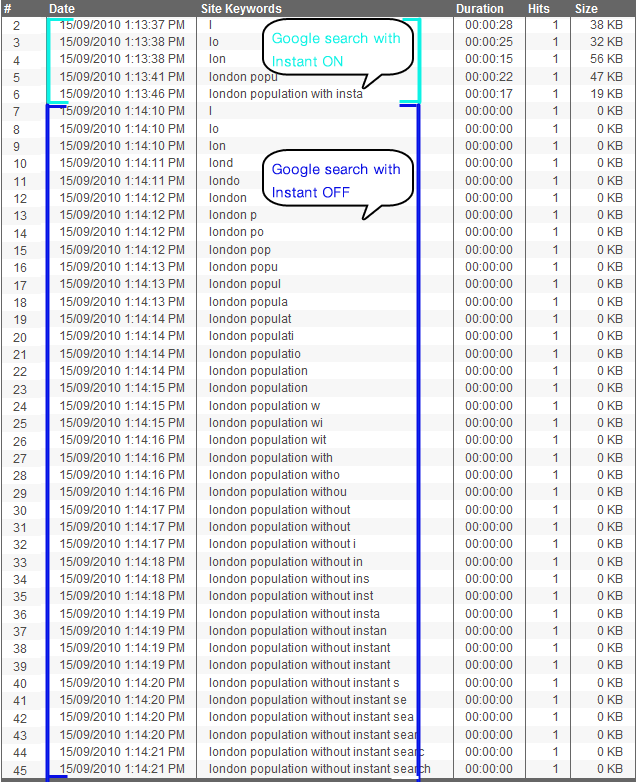Google recently announced a change to their search process: Google Instant. With Google Instant, users get results as they are typing and watch the results change as their search query changes without ever pressing enter.

Google states that the most obvious change is that you get to the right content much faster than before because you don’t have to finish typing your full search term, or even press “search.” Another alleged benefit is that seeing results as you type will help you formulate a better search term by providing instant feedback.
Google anticipates that Instant will not slow your Internet connection. Even though they are serving more results pages, the additional load this enhancement creates is very small when compared to other types of web services such as streaming video and online gaming. Google has also worked to minimize the amount of data that is sent and received during the search process. For example, when rendering new results as you type, Google only send the parts of the page that change, without updating the static elements, such as a the page frame around the results.
How will Google Instant affect your log files?
Google clearly anticipates that Instant will significantly affect user search behavior, but what effect will it have on the data in log files and accuracy of Internet usage reporting?
To test this I turned on Instant search and typed in “london population with instant search”, turned Instant search off and typed in “london population without instant search”. I made sure both searches were typed in during a similar time frame, approximately 10 seconds. I then ran a report in Vantage on site keywords and got below results:

Looking at the above hits and size results it is clear that Google Instant search will substantially decrease the number of hits generated during a typical Google search while increasing the amount of data downloaded.

Leave A Comment